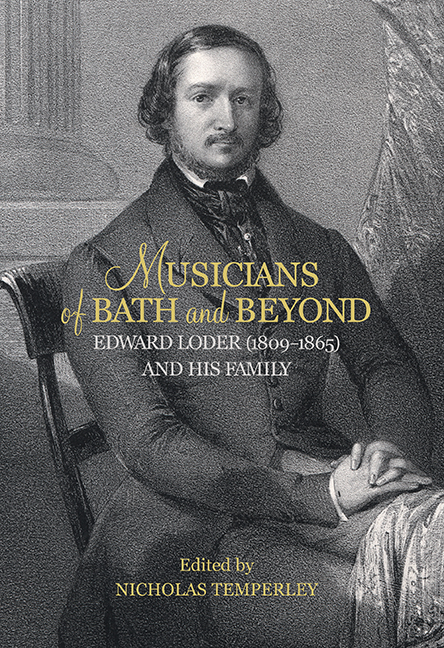Book contents
- Frontmatter
- Contents
- List of Illustrations
- Acknowledgments
- Notes on Contributors
- The Loder Family Tree
- Abbreviations
- Introduction
- PART ONE The Musical Profession in Early Nineteenth-Century England
- PART TWO The Loder Family
- PART THREE The Music of Edward Loder
- EPILOGUE The 1966 Revival of Raymond and Agnes
- Select Bibliography
- Index of Edward Loder’s compositions
- General Index
- Miscellaneous Endmatter
12 - Edward Loder’s Serious Operas
Published online by Cambridge University Press: 04 June 2021
- Frontmatter
- Contents
- List of Illustrations
- Acknowledgments
- Notes on Contributors
- The Loder Family Tree
- Abbreviations
- Introduction
- PART ONE The Musical Profession in Early Nineteenth-Century England
- PART TWO The Loder Family
- PART THREE The Music of Edward Loder
- EPILOGUE The 1966 Revival of Raymond and Agnes
- Select Bibliography
- Index of Edward Loder’s compositions
- General Index
- Miscellaneous Endmatter
Summary
THE composition of opera clearly represented a heightened activity for Edward Loder. Although only three works in the genre survive (Nourjahad (1834), The Night Dancers (1846) and Raymond and Agnes (1855)), and Loder's ability to work in this area was, more often than not, inhibited by pressures from elsewhere, it is self-evident from an examination of the surviving scores, and especially those of the latter two works, that Loder both esteemed and loved the genre, and aspired to be remembered as a successful opera composer. This chapter examines these three works which, happily, date from the beginning, middle, and end of his career, separated by gaps of about a decade, thus allowing consideration of his development as a composer, interest in dramatic narrative, and his approach to the operatic genre. What emerges is clear evidence of an evolving style, increasing sophistication and understanding, and growing independence, such that his own beliefs and aspirations steadily displaced, though did not wholly eliminate, pressures and values from the wider world of performers, critics and audiences.
Although Loder had numerous entrées into the musical world through the network of connections made by his father, it was not until the production of his opera Nourjahad that he came to widespread public notice. According to one of his letters, published as a preface to the vocal score, it was through his connection with William Hawes that Loder gained this commission from the veteran impresario and dramatist Samuel J. Arnold. On a page of acknowledgements (quoted above, p. 224), Loder noted the speed at which the music had been composed and added:
I hope that my future productions will better merit the praise which has been bestowed upon this; and, though a German Student in music, I shall feel proud to be one of the British Composers in the field, with many, who shall prove the great advantage of having their works brought before the public at the English Opera House.
The defensive tone when referring to the pace at which the opera was composed suggests that Loder was either not wholly satisfied with what he had produced, or that he was hoping to deflect any criticisms.
- Type
- Chapter
- Information
- Publisher: Boydell & BrewerPrint publication year: 2016



